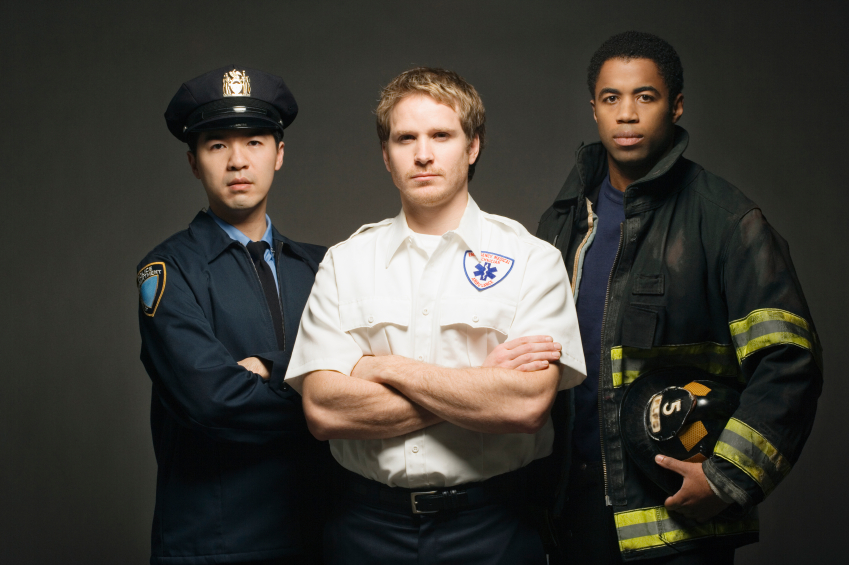
(This content is being used for illustrative purposes only; any person depicted in the content is a model)
Author: Shernide Delva
When tragedy strikes, most people will run away from it. Only a select few are trained to run towards danger. They are first responders: Firemen, police officers, EMT, and combat veterans deal with death and violence on a daily basis. Seeing horrific images and pain is all parts of a day’s work. They are the first to respond. They are our first and only hope.
So it should come to no surprise that first responders often suffer from PTSD, addiction, depression and mental illness. Imagine doing everything you could to save someone’s life and they did not make it. Imagine gunshots, blood everywhere. You only have seconds to react and save a life. Sometimes you may have to save yourself. After a longs day work, your job is complete for the day. You go home. Then what?
Despite the traumatic work that first responders deal with on a regular basis, they often are the last ones to talk about the psychological impact of their occupations. Experiencing terrible accidents day after day can lead first responders to addiction. They seek solace by using substances and abuse alcohol and drugs. If untreated, some can go further down a path of destruction. Most are too afraid to ask for help so they keep their problems locked up inside. Many feel there is no hope for them. They fear showing weakness so they mask it with strength while self-medicating.
After witnessing terrible incidents day by day, first responders may seek solace through abusing substances even if they had no addictions prior. If they do have issues with drugs and alcohol, many times their profession makes their condition worse.
Many articles are recommending that first responders receive specialized treatment options tailored to their needs. There are treatment centers that offer specialized programs for first responders that combine peer support with clinical evidence-based treatment.
Some departments offer mandatory debriefings but many do not provide any support at all for those suffering. It is recommended that first responders seek a solid support group even if they are not consumed by addiction. Most first responders do not feel comfortable with outsiders because they feel admitting to help will result in losing their profession.
Clare Seletsy is the clinical coordinator for the First Responders Addiction Treatment Program at Livengrin Foundation. Her treatment center approaches first responders in a specialized way. She believes that there are many reasons that deter first responders from receiving treatment:
“In addition to the stress and trauma on the job, lack of trust in mental health professionals, their training to never surrender, hyper-masculinity and the drinking/enabling culture, there is also the heightened potential for physical injury on the job. “
Prescription drug abuse is major problem among first responders. Because first responders often get injured from their duties, doctors are easy to prescribe pain killers. They often acquire easier access to drugs due to the regard they receive in their position. Even when first responders are prescribed drugs to take as needed, they are very prone to start abusing that medication.
Alcohol abuse is also extremely common in the field. Alcohol is used by first responders to deal with the emotional trauma experience when handling tragic situations on a daily basis. The fear of losing their jobs prevents most from seeking help from their addiction.
When looking for an effective treatment program for addiction, first responders should ensure there are:
- Thorough physical and psychological evaluations
- Medically supervised inpatient detox
- Specialized rehab options for first responders broken into select programs depending on their profession
- Aftercare and professional and disciplinary assistance
- PTSD therapy
- Anger management
The tough guy persona that first responder’s feel they must adhere to is deterring many from seeking treatment. Here are some shocking stats:
- Firefighters: Up to 29% if firefighters engage in alcohol abuse.
- Police: 25% believe drinking to be part of the norm yet 25% have been affected negatively by the drinking of other coworkers.
- EMTs: EMTs have the highest rate of alcohol and drug abuse. It’s been revealed that 40% engage in high risk alcohol abuse and close to 20% experience PTSD.
As you can see, alcohol and drug abuse is a serious issue affecting the first responder’s profession. There are many ways you can help.
Palm Partners has decided to sponsor The Harringan Foundation in its efforts to help first responders with addiction and mental health issues. The First Annual Run to the Rescue 5K and Walk will occur on February 6, 2016. Proceeds from the race will benefit the treatment of first responders suffering from addiction and/or trauma disorders. If you would like to participate or find out how you can donate to the cause, check out the race’s official Facebook page.
No first responder should have to stop doing their job because of the disease of addiction. If you or someone you love is struggling with substance abuse or addiction, please call toll-free 1-800-951-6135